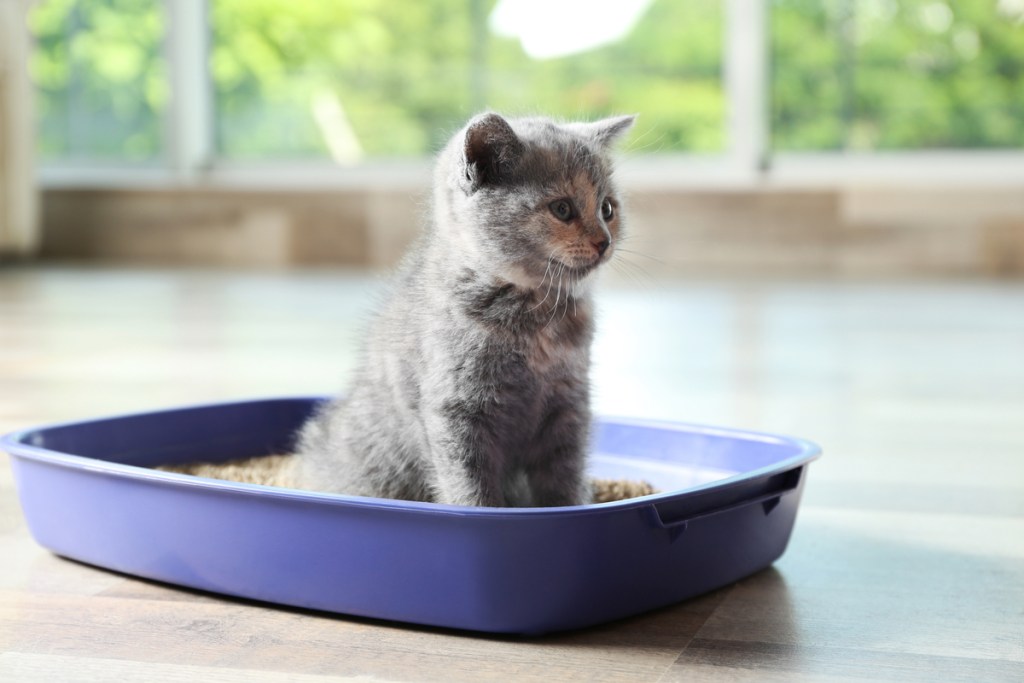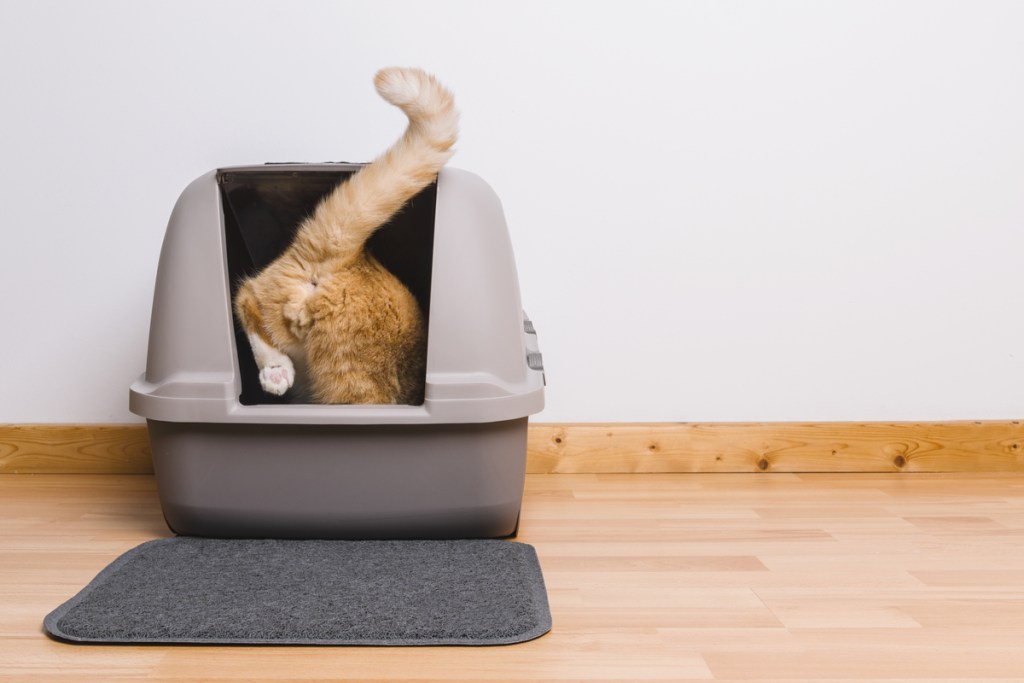Your cat may have used the litter box perfectly fine for years, and then suddenly something changes, and those great litter box habits are gone. Finding cat pee and poop outside the litter box isn’t just frustrating, but it can also damage rugs and carpets in your home, so it’s important to figure out what’s causing this behavior. The good news is that many of the causes behind litter box issues are easily fixable once you find them. If you’re wondering, “Why is my cat pooping outside the litter box?” then one of these common causes might be to blame.
Get a different litter box
If you’ve recently changed the litter box you’re using, your cat might be protesting because he doesn’t like the style or size. Some cats hate enclosed litter boxes, while others are just fine with them. A new box can also smell and feel different, so your cat might not be pleased with the change.
Keep in mind that a box that’s too small or too high for your cat can be uncomfortable for him. This is particularly true of boxes with higher edges, which can be difficult for cats with arthritis to get into and out of. Your cat might avoid the box because of this discomfort, so try changing the type of box you’re using and see what happens.

Try different litter
Cats may also boycott cat litters that they don’t like. Some cats highly dislike scented litters, while others might not like the texture of a different type of litter, like a corn- or paper-based litter.
If you’ve recently swapped your litter, try switching back to the old kind. You might also need to experiment with the litter depth. Cats are highly particular, and your cat might avoid the box if he feels there’s too much or too little litter in it.
Get more litter boxes
Too few litter boxes can also be behind accidents. At a minimum, you should have one box per cat in the house and then one extra box. So, if you have three cats, you should have at least four boxes.
Make sure that those boxes are spaced out throughout your home, too. There should be at least one box on each level of your home, making them convenient and easy for your cats to access at any time.
Check on your other pets
Sometimes, other pets can cause your cat to feel uncomfortable or like they can’t even access the litter box. Another cat or a dog who’s dominant toward your cat might not let your cat into the room where the box is. If pets stroll in or frighten your cat while he’s using the box, he might avoid it in the future.
You may need to situate the litter boxes so that other pets — particularly dogs — can’t get to them. You can accomplish this by putting them in a bathroom or laundry room and using a pet gate or a cat door that your cats can get through but your dogs can’t.
Discourage repeat accidents
In addition to focusing on the litter box, it’s important to discourage your cat from doing his business in other areas of the house. If your cat has already had an accident, thoroughly clean the area and consider using an enzymatic cleaner to eliminate any odors. You might close the door to the room (if possible), remove the rug, or otherwise cover the area with furniture to prevent your cat from getting to that specific spot again. If you do block off the area, then don’t give your cat access to it again until he’s demonstrated good litter box habits for at least a month.

Head to the vet
Sometimes, litter box issues are prompted by physical problems, like constipation and pain. If you notice that your cat is yowling while he’s using the box, heading into the box frequently, or digging around in the box without actually using it, he might be having a health issue that needs attention. Schedule an appointment with your vet to check up on your cat’s health and to get him any treatment he may need.
Getting to the root of litter box issues can take some time, patience, and detective skills. In some cases, multiple factors might be causing your cat to avoid the box or to have accidents in the house. You may need to watch your cat carefully before you can tell what’s really going on. If there have recently been big changes in the house, like a renovation or the addition of a new family member, that’s often a good place to start. Remember, your cat’s pooping outside the litter box is probably being driven by some sort of discomfort or feeling of insecurity. If you can figure out the cause and fix the problem, your cat should resume his normal litter box habits again.
Editors' Recommendations
- Wondering why cats chirp? Fascinating reasons why your cat chirps at birds (and you)
- How to tell if your cat is a Maine Coon mix (and why you should care)
- Your cat trilling is actually a good thing – here’s why
- Is your cat hissing and growling a lot? These 5 tips will work wonders on your feline friend
- The kind of nutty behavior to expect if you don’t neuter your cat



